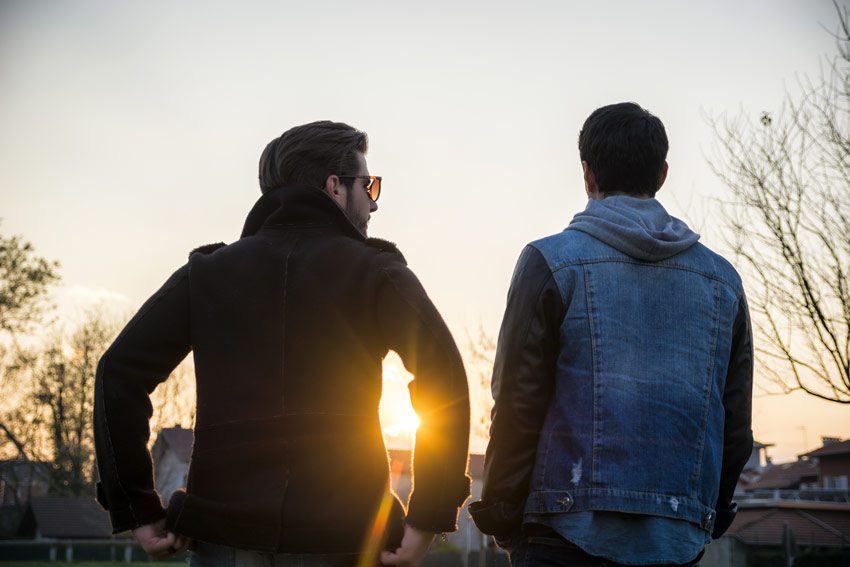No two people in recovery are exactly alike, but several studies have indicated that having a strong support system in place plays a vital role in helping individuals in recovery learn to successfully manage their substance use disorders. Support can come from many sources, but having a formal recovery mentor may particularly helpful as you transition from residential treatment to independent living.
What Does a Recovery Mentor Do?
A recovery mentor is a person who acts as a trusted counselor and advisor for someone who is in recovery from drug or alcohol addiction. A good mentor:
- Is in recovery themselves
- Has experience working with people who are newly sober
- Has a friendly demeanor that sets you at ease
- Demonstrates strong communication skills
- Shows dedication to ongoing education and training in the addiction treatment field
- Is open-minded and able to work well with individuals from diverse backgrounds
- Respects privacy and confidentiality
- Is motivated by a desire to help others break free from the burdens of addiction
The services a recovery mentor offers will depend upon the individual needs of the newly sober person. However, recovery mentors can:
- Accompany you to 12-Step meetings
- Help you practice relapse prevention strategies
- Promote healthy lifestyle choices related to stress management, nutrition, exercise, and dealing with chronic pain
- Provide information about managing co-occurring mental health conditions
- Offer advice about how to handle recovery challenges based on their own personal experience
- Connect you to resources in the community that may be of assistance
- Build self-esteem as you determine what you want your life in recovery to look like
- Encourage you to keep working towards your goals and provide a source of accountability
The mentoring relationship can last as long as you need it. Some people may only want a mentor for a few months, while others may desire a more long-term relationship as part of their sober support system.
If My Loved Ones Are Supportive, Do I Need a Recovery Mentor?
Supportive friends and family can play a vital role in the recovery process, but it’s hard for these individuals to truly understand what you’re going through unless they’ve been in recovery themselves. They may be committed to learning about addiction and deeply invested in your wellbeing, but there will always be certain aspects of your recovery that they struggle to understand. Their own emotions may also color their judgement, especially if they haven’t had access to counseling or support services for people who love someone with a substance use disorder.
A recovery mentor can offer advice and support based on personal experience as well as professional education. If there are certain issues you don’t feel comfortable discussing with your family or friends, it can be particularly helpful to have another person in your life who can provide a balanced perspective.
What’s the Difference Between Recovery Mentoring and Having a Sponsor?
If you’re familiar with Alcoholics Anonymous (AA) or another 12-Step program, you may have heard how sponsors can provide support and encouragement throughout the recovery process. While a sponsor’s guidance can certainly be valuable, there are several reasons why you may still want a recovery mentor. For example:
- It can take quite some time to find a suitable sponsor, since members are encouraged to attend several meetings before asking someone to serve as their sponsor.
- A sponsor is someone who is currently working the 12-Steps, but this person is unlikely to have a formal background in addiction treatment.
- Your sponsor has his or her own recovery-related struggles, as well as work and family obligations to attend to. Thus, he or she can’t provide an intensive level of support.
- Your sponsor can speak about what resources have been helpful in his or her personal recovery experience, but may not know about all the avenues available to help you.
How Can DK Solutions Group Help?
Recovery mentoring is just one of many support services offered by DK Solutions Group. Owner Daniel Krasner has been sober since 2005 and working in the addiction treatment field since 2010. He received his CIP (Certified Intervention Professional) credential in 2013 and is committed to helping clients learn how to take control of their own recovery process.
If you need added support following residential treatment for drug or alcohol addiction, recovery mentoring services from DK Solutions Group may be appropriate as part of your continuum of care. Contact us today to learn more.

